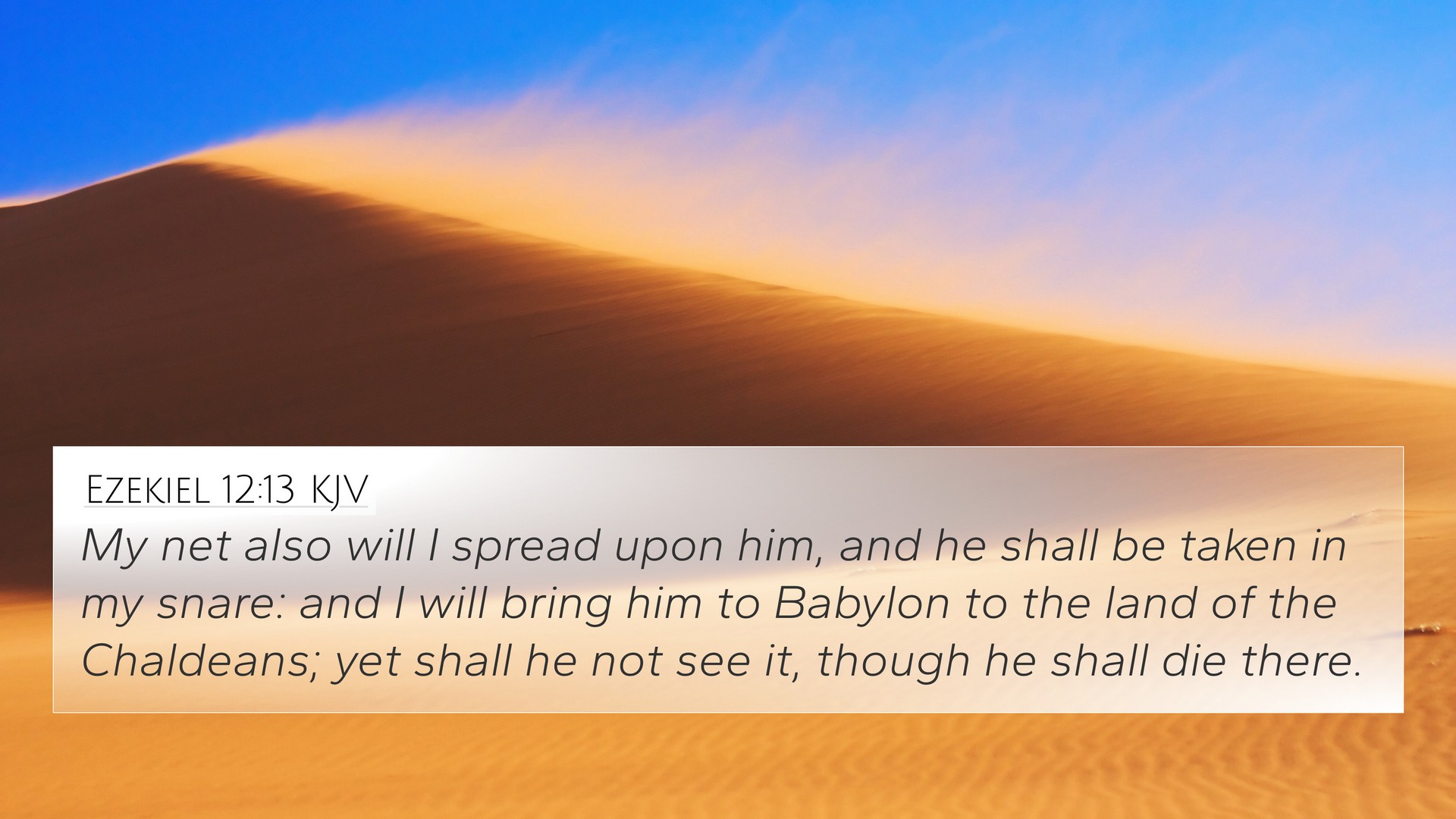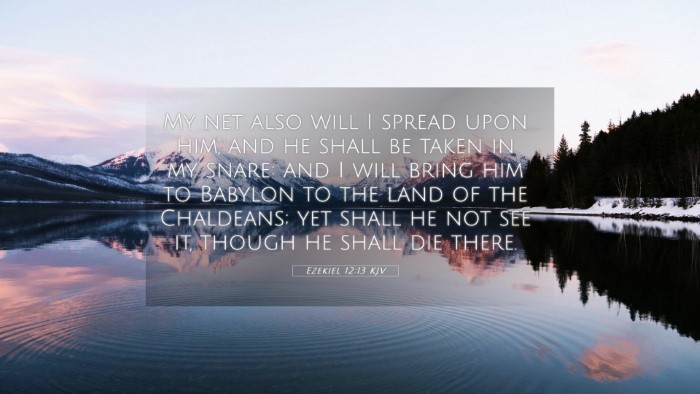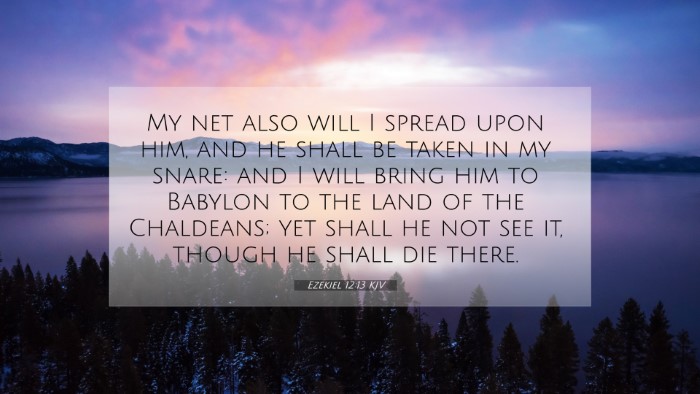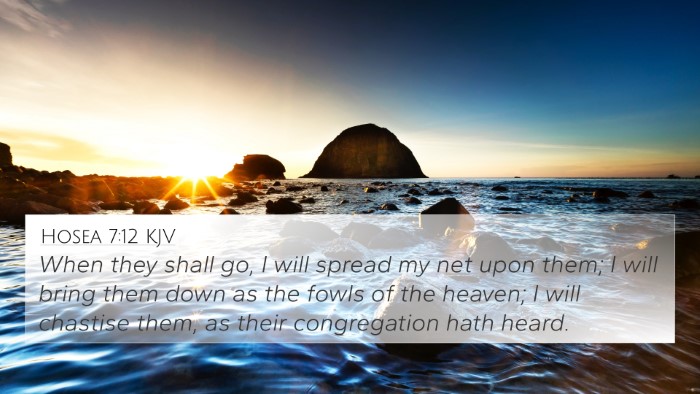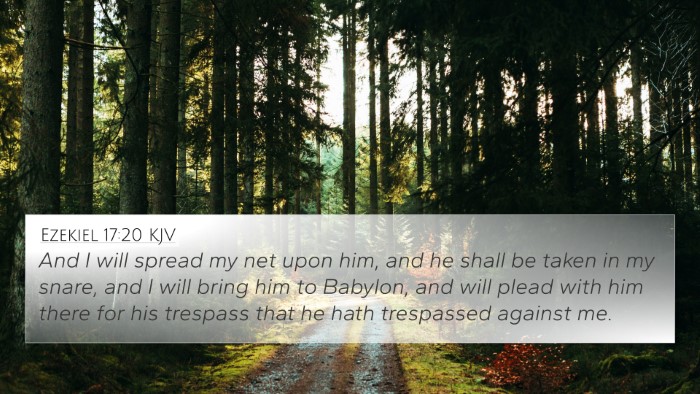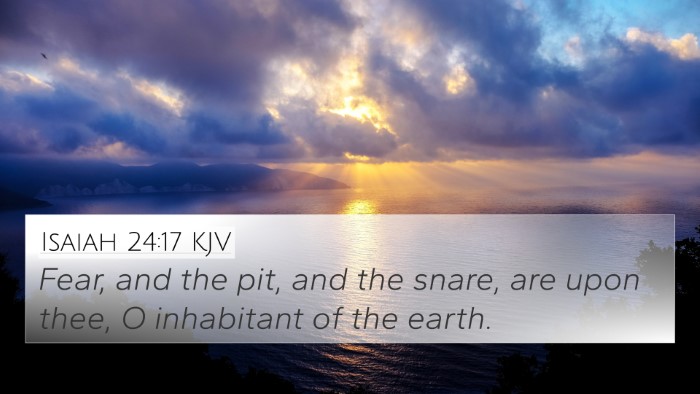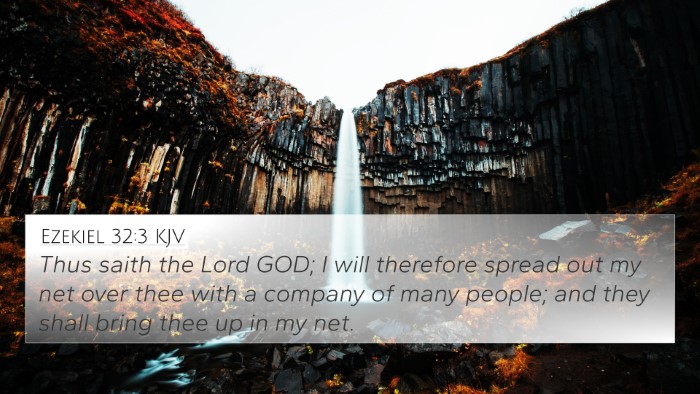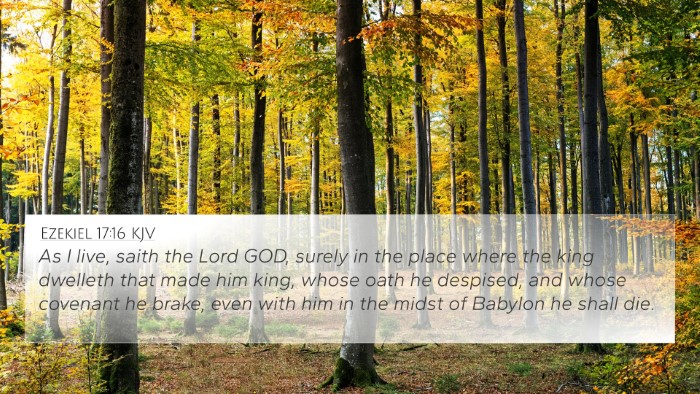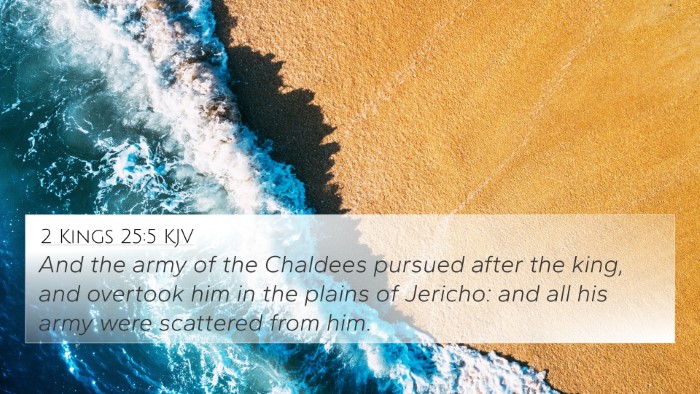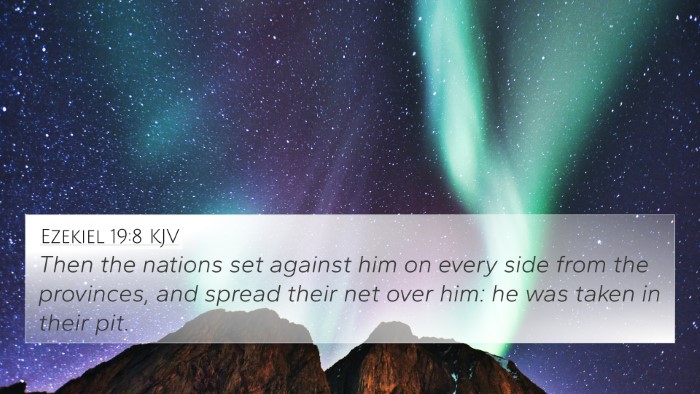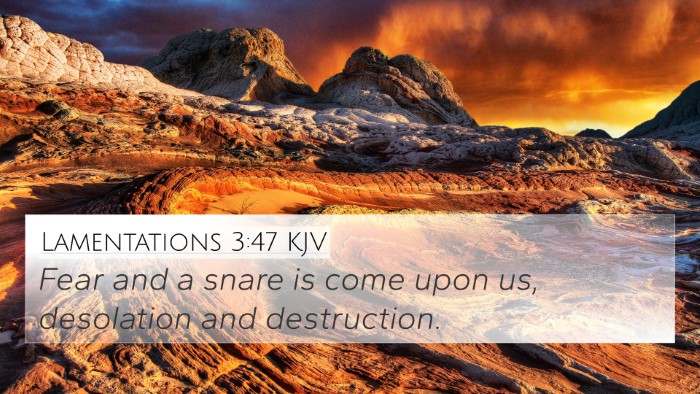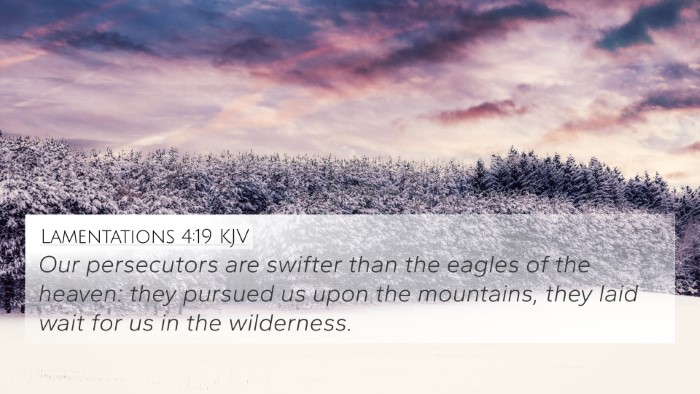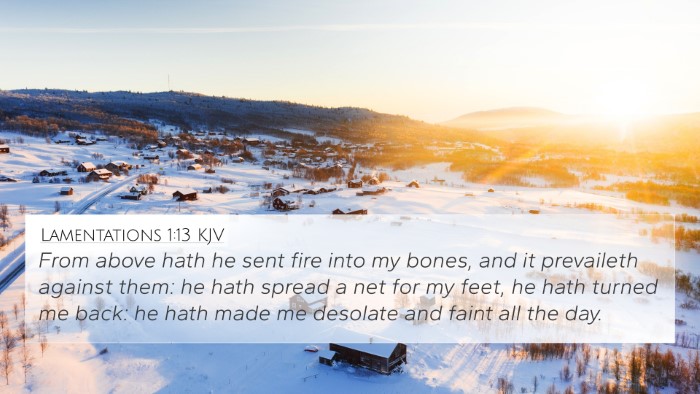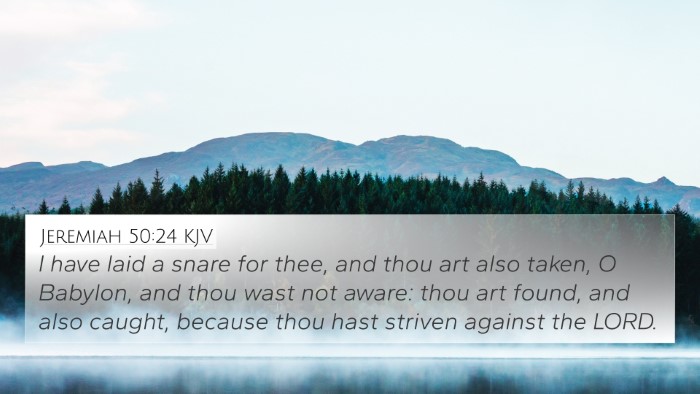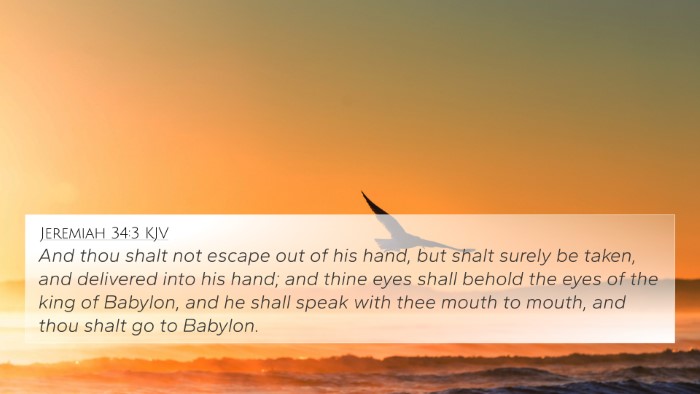Ezekiel 12:13 - Meaning and Interpretation
Ezekiel 12:13 states, "I will spread my net upon him, and he shall be taken in my snare: and I will bring him to Babylon, to the land of the Chaldeans; yet shall he not see it, though he shall die there." This verse carries profound significance in the context of prophetic warning and judgment.
Summary of Meaning
This verse illustrates God's sovereign control over events and His impending judgment upon the people of Israel, specifically referencing the king and the leaders who will face consequences for their rebellion. Ezekiel employs vivid imagery, likening God's action to a fisherman laying out a net to ensnare his prey, indicating the certainty of capture and judgment.
Insights from Commentaries
-
Matthew Henry:
Henry emphasizes the inevitability of divine judgment upon those who turn away from God’s commands. He points out that the metaphor of the net symbolizes God's inescapable plans, and the king’s failure to see Babylon signifies the consequences of his choices, ultimately leading to death without firsthand experience of his punishment.
-
Albert Barnes:
Barnes comments on the implications of exile, noting that the mention of Babylon signifies the removal of God’s blessings and protection. The interpretation serves as a warning against pride and disobedience. He stresses the importance of recognizing the authority of God over kingdoms and leaders, vividly demonstrating God's ability to orchestrate events as He wills.
-
Adam Clarke:
Clarke identifies the deep sense of hopelessness in the verse, arguing that it reflects the consequences of a life led away from God's wisdom. He describes how the leaders’ misdeeds lead them to a falsified sense of security, ultimately bringing upon them the very calamity they ignored, which is a recurring theme in prophetic literature.
Cross-References and Thematic Connections
Understanding Ezekiel 12:13 can be enhanced through various cross-references that bind significant Biblical themes. Below are several pertinent connections:
- Jeremiah 52:31-34: Discusses Jehoiachin's captivity and how he was treated in Babylon, highlighting the theme of exile.
- Ezekiel 17:20: The metaphor of a net is also found here, emphasizing God's intervention in the affairs of nations.
- Isaiah 14:1-2: Echoes similar themes of judgment and restoration, drawing connections with the exiled people.
- Ezekiel 18:30: Calls for repentance, illustrating that turning back to God can alter one’s destiny, complementing the dire warnings in Ezekiel 12:13.
- 2 Kings 25:27-30: Relates to the fate of captives in Babylon, providing historical context.
- Hebrews 9:27: Discusses the finality of death, linking with the theme of facing consequences after life.
- Amos 9:1: Another prophetic metaphor concerning judgment that can help understand God’s dealing with Israel.
The Importance of Cross-Referencing
Cross-referencing Bible verses allows for:
- Deeper understanding of Biblical texts through connecting themes.
- Illuminating parallels between the Old Testament and New Testament.
- Exploration of prophetic warnings and their fulfillments in scripture.
Tools for Bible Cross-Referencing
Utilizing a Bible concordance and cross-reference guides can enhance your study, helping to:
- Identify and explore connections between different books of the Bible.
- Dive into thematic studies that trace God's promises and judgments through various narratives.
- Prepare for sermons or teachings by finding related scripture to support your message.
Conclusion
The study of Ezekiel 12:13 illustrates the profound implications of judgment and God's sovereign plan. This verse challenges readers, encouraging a reflective examination of their relationship with God and the choices they make. Engaging with the interconnectedness of scripture through cross-references enriches the understanding and application of the Biblical text.
